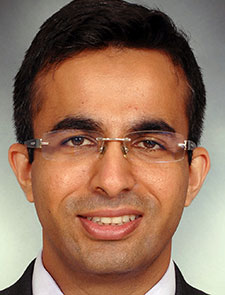
Dr. Mehta
Clinical question: Do team-based discussion strategies among resident physicians affect practice intensity and clinical certainty?
Background: Studies have shown that the learning environment for a resident physician explains variations in practice intensity more than individual personality traits. It is important to understand the ways in which learning environments influence residents’ development of practice patterns to identify targets for improvement in graduate medical education. Team-based approaches to decision making have been shown to have a positive impact through the aggregation of individual judgments and team-based discussions. Practice intensity is the likelihood of ordering diagnostic tests, empiric therapies, or subspecialty consultations while clinical certainty is the proportion of “definitely yes” or “definitely no” in clinical decision making in this study.
Study design: Multicenter vignette-based study
Setting: Seven internal medicine residency programs in the U.S.
Synopsis: Of 651 eligible internal medicine residents, 222 participated (34% response rate). A vignette-based instrument was adapted to measure practice intensity (PI) and clinical certainty (CC). Participants formed groups and completed each item of the instrument individually and as a group with time for peer discussion in between individual and group responses. The mean individual PI score was 2.33, where a higher score indicates a more intense practice style. The measured group PI score was 2.29, which was significantly lower than the predicted PI score with a mean difference of 0.04 (SD, 0.10; 95% CI, 0.02-0.07; P, 0.0002). Individual CC score was 0.475 while the average measured group CC score was 0.493 which was significantly higher than the predicted CC score with a mean difference of 0.018 (SD, 0.073; CI, 0.0006-0.0356; P, 0.022).
Bottom line: Peer discussion in a team-based setting decreases practice intensity and increases clinical certainty in graduate medical education.
Citation: Etherington NB, et al. Peer discussion decreases practice intensity and increases certainty in clinical decision-making among internal medicine residents. J Grad Med Educ. 2021 Jun;13(3):371-6.
Dr. Mehta was formerly a unit-based director at the Cleveland Clinic and is now an assistant professor of medicine and a clinician-educator at the University of Cincinnati Medical Center, Cincinnati, and president of the SHM Lake Erie/Northern Ohio Chapter.